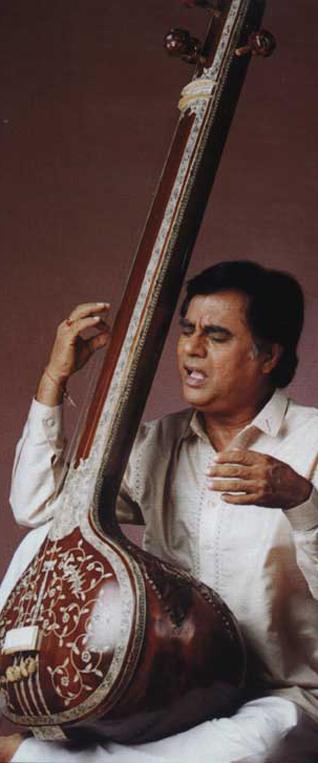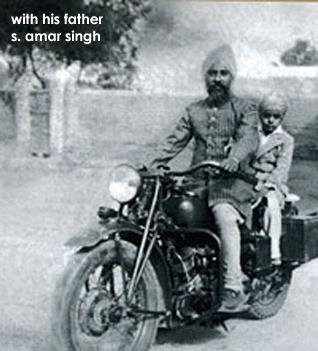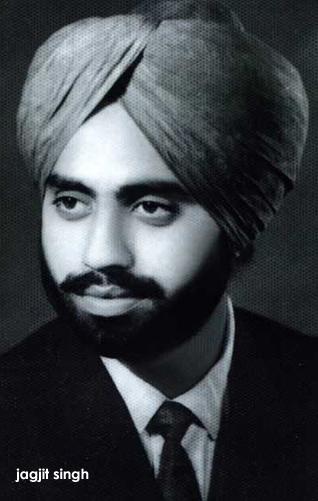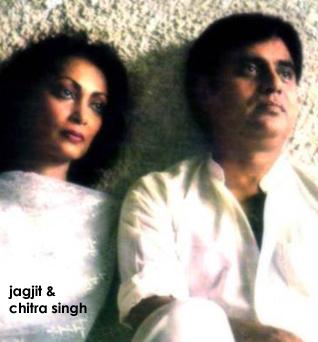Music
The Golden Voice Lives on: Jagjit Singh 1941 - 2011
INDIA TODAY
Stirring millions of hearts with his soulful numbers 'Jhuki jhuki si nazar' and 'Kaagaz ki kashti', ghazal king Jagit Singh infused a new life in the dying genre of music in the seventies and carved a niche for himself in Bollywood.
The pain and melancholy in his voice gave vent to the feelings of many a lonely heart.
Conjuring up hits like 'yeh zindagi kisi aur ki, mere naam ka koi aur hai,' 'Patta-patta boota-boota haal hamaara jaane hai,' 'Hontho se chhoo lo tum,' 'Tum ko dekha', 'Hazaar baar ruke ham and hazaar baar chale', Jagjit Singh made a mark during the '70s when the ghazal scene was dominated by well-established names like Noor Jehan, Malika Pukhraj, Begum Akhtar, Talat Mahmood and Mehdi Hassan.
The voice behind the timeless ghazals was inspired by singers like K L Sehgal, Talat Mahmood, Abdul Karim Khan, Bade Ghulam Ali Khan and Amir Khan.
One of the most successful and loved artistes of his time, he has left behind a huge body of work in a career spanning five decades, including 80 albums.
Often called the 'Ghazal King' by his fans and peers, Jagjit was born on February 8, 1941 in Sriganganagar, Rajasthan, to Amar Singh, a government employee, and Bachan Kaur. He had four sisters and two brothers and was called Jeet by his family.
Born and raised in the Sikh faith, he was named Jagmohan but later took on the shorter name, Jagjit.
It was his father who first recognised his son's talent.
He sent young Jagjit to learn the nuances of music under a blind teacher, Pandit Chhaganlal Sharma. He later trained under Ustad Jamal Khan of Sainia gharana for six-years and gained knowledge in khayal, thumri and dhrupad forms.
Jagjit Singh was of the view that music was for inspiration and not for competition. "The moment one brings competition into music, the soul is lost."
In a recent interview, he had regretted the fact that devotion and practice were disappearing from music at a time when everyone was running after instant fame.
"Music is a vast subject. There is mathematics and grammar in music. Unless one knows all of it, one cannot become a good singer. One should learn music for 15 years before actually trying one's hands at singing ghazals," he said.
Among his most memorable numbers were 'Tum itna jo muskara rahe ho', 'Apni marzi se kahan apne safar ke hum hain' and 'Pehle har cheez thi spni magar ab lagta hai apne hi ghar mein kisi doosre ghar ke hum hain'.
His last concert was planned with Ghulam Ali on September 23 at Shanmukhananda Hall, Matunga, in Mumbai, but was cancelled after he was taken ill the same day. The duo had given a stirring performance days earlier in Delhi.
Jagjit Singh began his musical journey singing 'shabads' in gurdwaras. He studied in Jalandhar, Punjab, where his college fee was waived because of his voice. He got a chance as a professional singer in Jalandhar's All India Radio station, which offered him six live music segments a year for small payments.
But success was a faraway dream for the singer, who came to Mumbai in 1961 to try his luck in playback singing but after some failed attempts, a dispirited Jagjit Singh returned to Jalandhar.
Not one to give up, he decided to give himself another chance and returned to the city of dreams in 1965. He managed to get two of his ghazals recorded with HMV.
However, playback singing continued to elude him and he earned by composing jingle, ad films and documentaries. He met his wife Chitra during one such recording and after two years, they decided to marry in 1970, which was also a turning point in his career.
Bollywood's loss was ghazal's gain, as Jagjit's fresh voice infused a new life into the dying genre, which was confined to select admirers. In 1975, HMV asked Jagjit to compose his first ever LP album, 'The Unforgettables'. The album featured Jagjit-Chitra ghazals, which were completely different from normal fare.
Jagjit Singh is also credited with introducing modern instruments along with traditional sarangi and tabla in ghazals.
The next album he recorded was the Punjabi 'Birha Da Sultan', poems of Shiv Kumar Batalvi, which continue to be popular even today. Jagjit and Chitra then composed and sang the first-ever double album, "Come Alive". Two more double albums, "Live at Wembley" and "Live at Royal Albert Hall", recorded in concert, followed in 1979 and 1982. Soon the couple were busy doing sold-out concerts.
Movie success too followed. In 1980, Jagjit gave his voice to Javed Akhtar's poetry in film "Saath Saath". Mahesh Bhatt's "Arth", which came in the same year saw Jagjit and Chitra's popularity sky rocket with evergreen numbers like 'Tum itna jo muskura rahe ho'.
In 1987, Jagjit recorded "Beyond Time", the first digital CD by an Indian musician. Another milestone was to follow when he was roped in to record and compose Gulzar's epic TV serial, "Mirza".
But while he was climbing new heights in his professional life, the singer suffered his life's biggest tragedy when he and Chitra lost their only son -- 18-year-old Vivek Singh -- in a car accident in 1990.
The tragedy brought desperation and a pause in their lives. Chitra lost her voice and never returned to stage or a recording studio but Jagjit battled on his depression.
"Munn jeetey jagjit", containing gurbani shabads, was the first album he recorded after his son's demise.
[Two years ago, another personal staggering blow left Jagjit and Chitra reeling - their other child, Monica, committed suicide in mAy 2009.]
Prior to the stroke which ultimately proved fatal, Jagjit was planning to team up with Gulzar again after the success of 'Mirza Ghalib' for an album based on the letters and poems of the 18th century poet.Read more at: http://indiatoday.intoday.in/story/ghazal-king-jagjit-singh-1941-to-2011/1/154365.html
Edited for sikhchic.com
October 11, 2011
Conversation about this article
1: Baldev Singh (Bradford, United Kingdom), October 11, 2011, 11:08 AM.
Sikhs have always excelled in the field of music and other arts and entertainment in India. Jagjit Singh dominated the area of classy popular music in the last several decades.
2: Gurjender Singh (Maryland, U.S.A.), October 11, 2011, 6:49 PM.
May Waheguru bless the departed soul. Beside gazals, Jagjit Singh also made various CDs of gurbani shabads. Thank you also, Jagjit, for the CD you produced for the 400th Gurgaddi Divas.
3: Paramjit Singh Grewal (Auckland, New Zealand), October 12, 2011, 5:39 AM.
May Waheguru bless Jagjit Singh ji's family with strength to accept His bhana. Jagjit Singh's rendition of the slok by the Ninth Guru Sahib is my favourite.
4: Mohan Singh (Toronto, Ontario, Canada.), October 13, 2011, 10:46 AM.
Jagjit Singh started singing gurbani hymns in the gurdwara, specializing in Asa di vaar. Later, he became popular for his ghazals.
5: Raj (Canada), October 13, 2011, 11:31 PM.
Jeeti Bha ji, as we called him, was the best musician of the recent decades. Whether it was gurbani shabad, Shiv Batalvi's poems, ghazal or a classical composition; his singing brought out true emotions of the composition. Not to be biased, but he sang the slok from Mohalla IX with Mohd. Rafi; his singing was many times better than Rafi's.
6: Harpreet Singh (Delhi, India), October 14, 2011, 3:12 PM.
With the death of a great singer who faced death of his young son and daughter a few years ago - may Waheguru give courage to his wife, Chitra Singh. I did not know that he was a Sikh. I am unable to understand why many Sikhs, famous or otherwise, squander away their Sikh identity.






